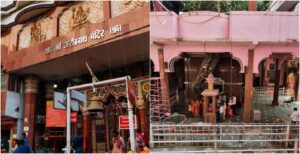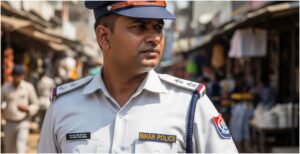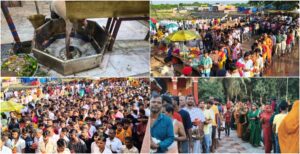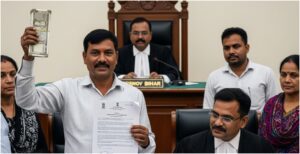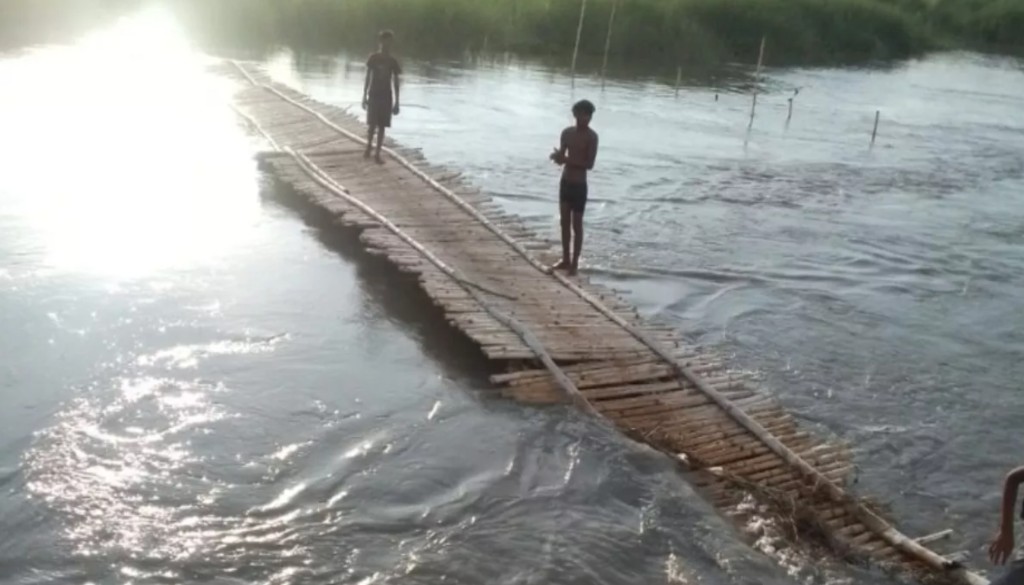
Champaran: Several villages in Bihar’s West Champaran district have been left isolated after floods swept away a makeshift bamboo bridge on Tuesday night, severing access to the Yogapatti block headquarters. The Chachari bridge, built over the Harha river near Siswa village, was destroyed by the surging waters of the Gandak river, which rose sharply following heavy rainfall in Nepal two days earlier.
The floodwaters breached the Harha river, a tributary of the Gandak, washing away the locally built bridge that linked half a dozen villages to essential services. The worst-affected areas include Mandhatapur, Srinagar, Godtoli, Bhashawa, Baisiya, and Masjid Tola — all located between the two rivers.
Former panchayat representative Pappu Pandey said the flooding had effectively paralysed movement for these communities, cutting off access to markets, healthcare, and schools. “The Chachari bridge was the only link for villagers, especially farmers, who used it daily to reach their fields in the Diara region,” he said.
Local officials, including Block Development Officer Anand Mohan Singh and Circle Officer Nagma Tabassum, visited the site on Thursday. “The bamboo bridge was constructed with community support, but it could not withstand the rising water levels,” Tabassum said, adding that arrangements for temporary boat transport are underway and the local disaster relief centre is being readied in case of further flooding.
Villagers say such events have become an annual ordeal. According to resident Narendra Sah, the Gandak river changed its course a decade ago, displacing several villages. Since then, residents have constructed a temporary bamboo bridge every year, spending around Rs. 30,000 each time. “It’s swept away every monsoon. The government promises help, but we end up doing everything ourselves,” Sah said.
Another local, Sudama Manjhi, expressed frustration at the administration’s unfulfilled promises. “Every year we hear about government boats being arranged. In reality, no government boat has operated in the past ten years. They just list private boats and give permission to run them.”
Boat owner Dhuran Chaudhary added that despite being registered, no private boat operators have received government payment. “We charge Rs. 50 to cross the Harha river because we have to manage everything ourselves — fuel, maintenance, and labour,” he said.

